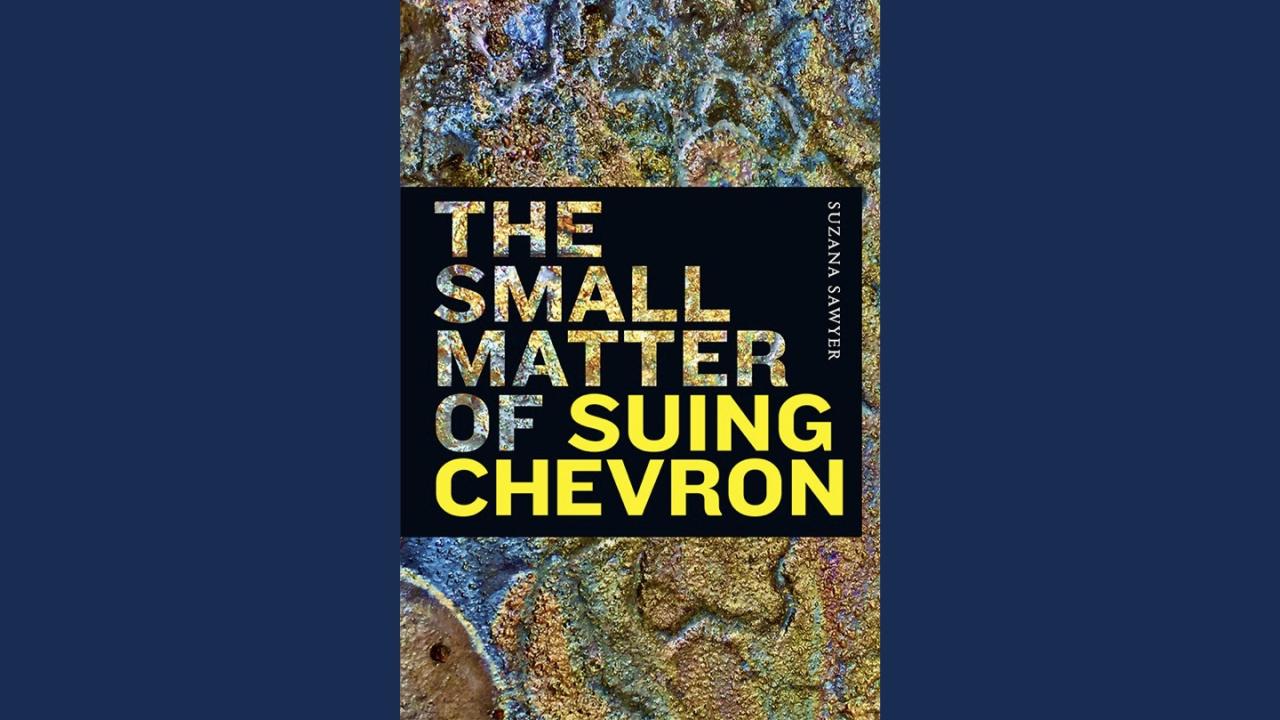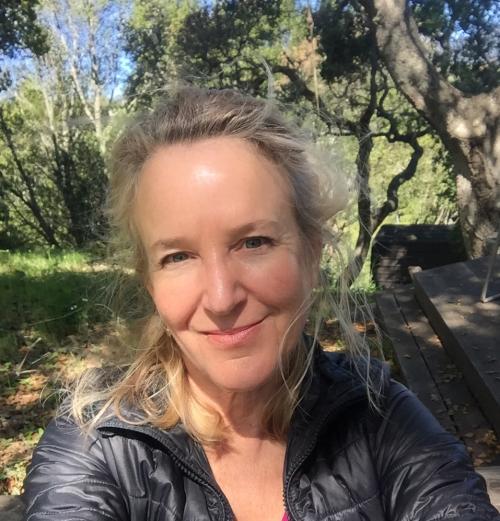
A UC Davis anthropologist is the joint winner of a prestigious book award from the United States of America’s oldest professional anthropological organization. Suzana Sawyer, a professor in the Department of Anthropology, recently received the American Ethnological Society’s Senior Book Prize for her 2022 book The Small Matter of Suing Chevron (Duke University Press).
In The Small Matter of Suing Chevron, Sawyer chronicles the decades-long litigation process surrounding a 2011 judgment by an Ecuadorian court that held Chevron liable for $9.5 billion in damages for environmental contamination in the Ecuadorian Amazon. However a handful of years later, a U.S. federal court and an international tribunal determined that the judgment was procured through fraud, delegitimizing the Ecuadorian court’s ruling and making it unenforceable.

“This book aims to understand how legal truths are made and how they are made differently in different legal fora — meaning in the court of Ecuador, in the federal court in the United States, and in the Permanent Court of Arbitration in The Hague,” Sawyer said. “The Small Matter traces a legal saga that spans three different continents, three different judicial systems, and three different, although related, litigations to understand how truth gets made legally.”
Sawyer is the 2024 joint winner with Adriana Petryna, a University of Pennsylvania anthropologist who won the award for her book Horizon Works: At the Edges of Knowledge in an Age of Runaway Climate Change (Princeton University Press).
“I am thrilled, totally thrilled,” Sawyer said of receiving the award. “The Senior Book Prize is granted only once every two years. To be considered, another senior scholar must nominate an author’s book. So, I really didn’t know my book was in the running. Receiving this recognition was a wonderful surprise.”
Conflicts of resource extraction
Sawyer’s research interest in the controversies surrounding resource extraction relate to her upbringing.
“From an early age I was aware of tensions related to the oil industry,” Sawyer recalled. “My father was a petroleum geologist and, by the time I was 13, my family had lived in North Africa, South America and Central America.”
Being exposed during those formative years to what Sawyer calls, “the political-ecological strains and ruptures that accompany hydrocarbon empires” would lead her down a path she never could have anticipated.
During her college years, Sawyer gravitated towards anthropology. She was enthralled with the diversity of humanity, specifically drawn to topics of inequality and the disparities spanning peoples and cultures. She earned a B.A. in anthropology from UC Berkeley and an M.A. and Ph.D. in the subject from Stanford University.
“In graduate school, my intention was to do my dissertation research in the Peruvian Amazon — having lived in Peru as a child — and look specifically at conflicts between oil companies and Indigenous peoples,” Sawyer said.
However, guerrilla movements in the region in the early 1990s made it unsafe to conduct fieldwork there.
Sawyer pivoted as a result, shifting her focus to similar conflicts occurring in Ecuador. It was the start of decades-long research in the country.
Ten years in the making
Sawyer spent ten years sifting through legal documents and conducting exhaustive research to write The Small Matter of Suing Chevron.
“Much care went into writing this book. It challenges the formidable stance of the second largest oil company in the United States,” Sawyer said, “and it challenges the ruling of the US federal court.”
“Calling into question the position of either of these institutions is a daunting task. Questioning both gives pause and demands care,” she added.
Despite this, writing and publishing the book has resulted in accolades for Sawyer, especially from within her field.
“This exceptional ethnography offers a brilliant and sophisticated analysis of the interplay between law and power, and their complex reactions within and across increasingly international and transnational legal systems,” the prize committee wrote of the book.
“What makes Sawyer’s ethnography so compelling is her ability to hold the question of justice to the side, and instead carefully guide her reader through the legal mechanisms, techniques, and strategies that shaped this epic legal controversy,” the prize committee added. “From this vantage point, Sawyer’s analogizing of law to chemical reactions becomes a poetic and ingenious way to describe law’s ability to be reshaped and influenced by the presence of dominant interests, epistemologies, and historical legacies.”
Sawyer is also the author of Crude Chronicles: Indigenous Politics, Multinational Oil, and Neoliberalism in Ecuador (Duke University Press) and co-edited The Politics of Resource Extraction: Indigenous Peoples, Corporations and the State (Palgrave Macmillan).
YOU MAY ALSO LIKE THESE STORIES

Uncovering the Origins of Human Behavior and Society
In the Integrative Anthropology Lab at UC Davis, Manvir Singh combines evolutionary, cognitive and sociocultural methods and theory to tease apart the origins of human behavior and societies. Particularly, he’s interested in sociocultural traditions like shamanism, witchcraft, story and music, among other topics.

The Father of the 21st Century
The book Father Time is a personal investigation into the deep history of male care, beginning with the very first caretakers, male ones among fish over 400 million years ago, through eons of mammalian and primate evolution.
